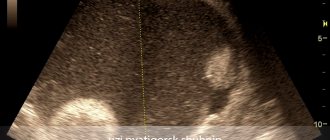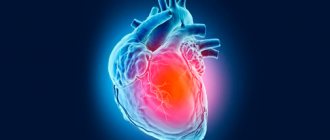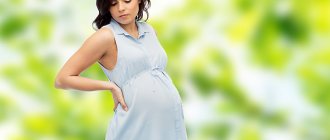The nutrition of the newborn’s mother determines what vitamins and microelements the baby will receive along with mother’s milk. A proper diet is also necessary to stimulate lactation: you don’t need to severely limit yourself in food or go on strict diets, since such drastic measures can cause milk to disappear. Meals should be balanced, and you also need to remember about the drinking regime. After reading this article, you will know exactly what a nursing mother can eat to benefit her baby.
The very first month of feeding a newborn - what is best to eat?
- From bakery products (not rich): bran, wheat, rye-wheat bread, biscuits are allowed;
- From meat products: boneless chicken, beef, boiled veal;
- Kefir and fermented baked milk, cottage cheese and uncolored yogurt;
- From cereals: any porridge without milk, or diluted in a one-to-one ratio of “water/milk”;
- Vegetables: potatoes, zucchini, cauliflower (white cabbage and carrots are allowed in small quantities), cooking method - stewing and boiling;
- From drinks: herbal teas (cumin, dill, anise), black but not strong tea, compote (dried fruits and apples);
- From soups: vegetarian soups without adding frying, as well as those cooked in weak meat broth.
The following are prohibited for a nursing mother in the first months of a child’s life:
- All the inhabitants of the sea and red fish;
- Drinks: strong tea and coffee, compotes and industrial juices, alcohol, sparkling water;
- From dairy products: whole milk and yoghurts containing any artificial additives and colorings;
- Canned food, fatty and fried foods, sausage;
- As for soups: strong broth based on fatty meat is prohibited.
What fruits can a nursing mother eat?
As for fruits on a nursing woman’s menu, there are as many doctors as there are so many points of view. Some doctors categorically prohibit their use, especially in the first 3 months. Others argue that you can eat them, but in small quantities.
The fact remains undeniable: you need to be careful when handling exotic fruits. Among the most dangerous are kiwi, pomelo, avocado, rambutan, mango, carambola, and all citrus fruits. The digestive system of any person, including a nursing mother and her child, will better and more easily accept those fruits that grow in the places of their birth. Overseas fruits can provoke allergies and are definitely additional risk factors.
So, for newborns who were born in Spain, or, for example, in Florida, an orange is considered the optimal fruit with which to start their first complementary feeding. While for Russian children this is unacceptable.
In addition, you cannot always be sure of the quality of overseas fruits. Often they end up on the counter without undergoing proper control, after being treated with harmful chemicals. The greatest dangers in this regard are: metal bromide, fungicides, sulfur dioxide and biphenyl.
Can you eat apples?
The opinion that apples can cause bloating and diarrhea is justified, but only when a person has such an individual characteristic. In all other cases, this fruit can be eaten, and when the child turns 10 months old, an apple should even be introduced into his diet. Naturally, if the mother is allergic to red-skinned fruits, then they should be prohibited. However, such cases are the exception rather than the rule. When a woman carried a child, ate apples and did not suffer from allergic reactions, then there is no need to be afraid of her after delivery. Therefore, almost all mothers can eat apples during feeding. If you still have doubts, you can simply get rid of the peel. Some doctors give the following recommendation: include these fruits in the menu only when baked in the first month of lactation.
Can a nursing mother eat bananas?
They are prohibited in the maternity hospital, but this is a basic precaution. These fruits can and should be eaten. It is bananas that contain mescaline, a substance responsible for a good mood, for increasing strength and vitality. Moreover, these yellow fruits are rich in minerals and vitamins. To get the most out of bananas, you can make a banana smoothie with yogurt. Simply grind the fruit with a blender and then mix everything with a mixer.
When purchasing most food products (including yogurt), a nursing mother needs to read their ingredients. Of the many additives of little benefit, aspartame is particularly dangerous - it is found, for example, in fermented milk products. In general, you should be especially careful in the store, as there are more and more manufacturers producing low-quality products. Therefore, when taking yogurt from the shelf, you need to choose the one whose composition is minimal. To protect yourself 100%, it is better to buy kefir and add honey, jam or regular sugar to it, and then beat it at home using a mixer. Even nursing mothers can drink this cocktail, the main thing is not to overdo it with the dosage. In addition to the wonderful taste, such a drink will have undoubted benefits.
Is it possible to have strawberries, cherries, and cherries while breastfeeding?
- Strawberry. The fact that this berry is taboo for nursing mothers is a baseless myth. If it was grown in your own garden plot or bought from an old lady at the market, then why not eat up to 7 berries. After this, you should look at the child’s reaction; if nothing happens, then you can safely continue tasting. Of course, you shouldn’t eat half a bucket of strawberries. In this case, rashes will appear not only in the baby, but also in most adults. If you follow the measure and consume only seasonal berries, then there will definitely be no harm. After all, strawberries are a storehouse of vitamin C. They contain even more of it than an orange.
- Cherries and sweet cherries. Most women deny themselves the pleasure of enjoying these stone fruits just because of their bright color. But red pigment is not a synonym for the word “allergen”. A reaction to it is possible only in case of individual intolerance, or as a result of heavy consumption of berries. To be on the safe side, you can eat a few cherries and monitor your child’s reaction. If it is not followed, then you should not miss the moment and completely abandon red berries.
- Melons and watermelons. If doctors often argue regarding other products, then regarding these melons they are surprisingly unanimous. It is better to avoid them during breastfeeding. The thing is that they are grown on soils that are depleted and weak, so they cannot do without treatment with chemicals that are harmful to the body of even the healthiest person. In addition, it is watermelons that tend to accumulate them, and it is impossible to remove the chemical from the striped berry. Therefore, it is better to refuse early watermelons. If you really want to, you can eat a few pieces in September and late August. Melon, on the other hand, is a heavy food; you can eat it very little during lactation and without combining it with other foods.
Mom's nutrition: the first weeks
For the first 3-7 days that the new mother will spend in the maternity hospital, she will be able to eat simple meals. In hospitals, the diet for women in labor is usually formulated in such a way as not to provoke allergic reactions. But in some state maternity hospitals you can find pea soups, milk, cabbage salads and other foods on the menu that can be harmful. In this case, ask your family to bring you healthy home-cooked food.
When preparing a diet for a nursing mother for the first weeks after childbirth, pay attention to the following recommendations:
- Don't cook complicated recipes. The simpler the dishes, the better. At first, you should avoid multi-ingredient dishes, giving preference to cereals, omelettes, fermented milk products, fish or steamed meat.
- Keep in mind that among vegetables, green foods (cucumbers, broccoli, zucchini, etc.) are considered less allergenic.
- Try to establish a diet and do not skip meals. At the same time, no matter how much you want to, it is better to refuse food so as not to overload the digestive system.
- Don't over-salt your dishes. Salt retains water in the body, so it can cause swelling.
- Try to move. For the gastrointestinal tract to function normally, a nursing mother needs to spend time actively. Even a 2-hour walk with a stroller will be enough.
There is no need to count calories, since the body spends a lot of energy producing milk. If you stick to proper nutrition, you will quickly return to your pre-pregnancy shape.
The first year of a baby's life is very difficult for the mother. Sleepless nights, changes in daily routine and other worries require great endurance from the body. Eating well will help you cope with this and feel strong even after a short sleep.
Is it possible to eat cucumbers, cabbage, and tomatoes while breastfeeding?
Most women are of this opinion: you should give up cucumbers, white cabbage and zucchini, as they are provocateurs of flatulence, and therefore contribute to increased colic in the baby. The explanation is simple: they weaken you because they contain a lot of fiber. Is it really?
- Cucumbers. They are the unreasonably priority vegetables that top the list of foods prohibited during lactation. “Knowledgeable” mothers say that all you have to do is eat a cucumber, and your baby will get green, foamy stools. However, for some reason they forget that such a weakening can happen due to the fact that the child simply does not receive enough fatty hind milk and early fore milk predominates in his diet. In addition, there are a number of studies indicating that digestive disorders in a baby are most often associated with intolerance to the protein contained in formulas and breast milk. Therefore, a nursing mother can eat those vegetables that she was used to consuming before pregnancy. Especially after the first 3 months.
- Cabbage. Why is it necessary to give up such a healthy and tasty vegetable while breastfeeding? If cabbage causes increased gas formation in mother and child, just add cumin to it and the negative effect will disappear on its own. Moreover, sauerkraut is so necessary in winter, because it is a champion in vitamin C content. In addition, white cabbage contains folic acid and a lot of other useful microelements. Therefore, you should discard scientifically unfounded prejudices and include this healthy vegetable in your daily diet.
- Tomatoes. Young mothers refuse them because of the same rich red color, fearing to provoke allergies in the baby. While lycopene, which gives tomatoes their color, is a powerful antioxidant. Both the woman herself and her baby need it. Just one glass of tomato juice can replenish up to half the daily requirement of vitamin C. But you should not drink it on an empty stomach. However, women who are breastfeeding should not consume tomatoes with nitrates. In order not to buy a dangerous vegetable, it is important to know some rules.
You should not buy thick-skinned tomatoes with obvious white veins that are visible on the cut. If you press a vegetable with your finger and a dent remains on it, if you hit it on the floor or wall and it bounces off and does not change shape, then this means only one thing - the tomato is rich not in useful substances, but in chemicals. It is better to avoid using it.
Why is breastfeeding beneficial?
To begin with, it is worth noting all the benefits that breastfeeding gives to a newborn. The point is in the composition and other features of mother’s milk:
- It always has the optimal temperature.
- It contains all the necessary nutrients, vitamins and microelements.
- It is able to adapt to the needs of the child, changing its composition and nutritional value over time, as E. Komarovsky writes about this in “The Beginning of Your Child’s Life.”
As a result, the child receives a sterile and safe product that is suitable specifically for him. Of course, we should talk about safety only when the mother adheres to the appropriate diet. Molecules of food eaten by a woman through breast milk enter the baby's body.
Can a nursing mother have beer, juice, tea, coffee, kvass, compote?
Drinks are a separate topic that interests many mothers who breastfeed:
- Cocoa and chocolate. It is actually better to refuse to take them. And there are really justified reasons for this. The proteins that make up cocoa beans can cause serious allergies in an infant. In addition, each of these drinks has a high sugar content, and it is better to limit sweets during breastfeeding, if not completely eliminate them.
- Kvass. The ban on this drink is due to the fact that it contains yeast, as it is the result of natural fermentation. They can cause bloating in the intestines of mother and child. If you purchase industrially produced kvass, it will certainly contain concentrates and additives, and it is often carbonated. You can take a few sips if you have an irresistible desire, and if the drink contains nothing but sugar, yeast and malt.
- Beer. It is a mistake to mistake this drink for being harmless, natural and not harmful. You shouldn’t believe commercials – there has been no natural brewing in Russia for a long time. All beer is the result of a combination of harmful components and preservatives. In addition, alcohol is harmful to the baby, and he will definitely get it if a nursing mother drinks beer. Some women are thinking about drinking beer that does not contain alcohol. But this drink, in order to transform, went through many production stages, which means it is far from healthy for both mother and child.
- Juices. You should not think that the juices that are on store shelves have benefits for the health of a woman, or especially a child. All of them are oversaturated with preservatives, made from concentrates with a heavy dose of sugar. Therefore, apart from taste pleasure, such drinks can no longer bring any benefit. If you want to treat yourself to juice during lactation, then you should prepare it yourself and consume it in small dosages. Pomegranate, carrot and apple juice are allowed.
- Compotes. This drink is definitely approved for use by a nursing woman. You need to cook it using dried fruits; if you decide to add berries, then you should watch the child’s reaction.
- Strong brewed coffee and tea. These drinks can harm a child due to the caffeine they contain. It can cause increased irritability, anxiety and sleep disturbances in the baby. This, in turn, negatively affects the baby’s nervous system. Moreover, scientists have repeatedly confirmed this fact in their studies.
Hypoallergenic diets
In the context of the need to temporarily prohibit allergenic foods for nursing women, an interesting study was recently published (although, we emphasize once again, any work regarding maternal nutrition and the neonatal period in general requires additional evidence).
One hundred and twenty women taking part were divided into three groups:
- 40 of them ate a diet high in eggs;
- 36 - completely excluded this product from their diet;
- 44 — consumed it moderately.
After 6 weeks of the diet, as the results showed, in the first category, significant concentrations of ovalbumin, the main protein in egg white, were noted in breast milk, which correlated with a significant concentration of antibodies to it in the child’s body. This gave reason to assume the development of oral tolerance - that is, the absence of reactions (local and systemic) from the immune system to a specific antigen supplied with food - a foreign substance.
Study
: Effects of Maternal Dietary Egg Intake During Early Lactation on Human Milk Ovalbumin Concentration: A Randomized Controlled Trial
In general, many scientists are inclined to believe that there is a so-called critical window - this is the first 1000 days of a baby’s life, during which the immune mechanisms are adjusted. It is believed that external influence on key links during this period can lead to a significant reduction in the risks of allergic diseases.
Of course, the first acquaintance with allergens occurs in the mother’s body - in particular, they can also be microbial foreign patterns. Then, after birth, immunocompetent cells continue to encounter various antigens - all this should ultimately lead to a clear distinction between “self” and “foreign”.
The results of a study of those babies who adhered to artificial feeding are noteworthy - in particular, the preventive effect of hypoallergenic formulas (based on protein hydrolysates) was also noted. Thus, children born from parents with allergies (and therefore at a fairly high risk) and during the first six months of their life received a partially hydrolyzed mixture (that is, the protein molecules in which were already “cut” into smaller fragments, which significantly facilitated the process of digestion and absorption), at 6 months and at 3 years they had absolutely identical IgE indicators (antibodies directly involved in the development of allergic (anaphylactic) reactions of the first type) with babies who were fed standard formulas.
We recommend
“Psychology of stress: types, stages, ways of dealing with it” Read more
However, it must be said that newborns on a hypoallergenic diet had higher levels of T cells - an indicator of oral tolerance.
Both studies cited in our article are contradictory. Perhaps the truth really lies somewhere in the middle. However, given the scale and duration of the research necessary for an accurate determination, this will not become known soon.
Is it possible to have milk, ice cream, eggs?
- Milk. There is no clear opinion as to whether a nursing mother can consume milk. Some doctors say that it can be added in small quantities to tea or porridge. Other doctors are of the opinion that if the baby is not allergic to the protein that is part of milk, then the mother can drink it. To decide whether milk and milk-based products can be included in the diet, a woman needs to drink milk and watch the baby after feeding. If rashes suddenly appear, then you should give up milk for at least a week. The rash is going away, which means there is a need for analysis. If it is positive, then you will have to abstain from milk.
- Ice cream. An allergic reaction to cow protein automatically prohibits the consumption of ice cream. In addition, most manufacturers add palm oil to this delicacy, which has a negative effect on the human body.
Palm oil is harmful because it is a carcinogen and many countries in the world have already abandoned its use in the food industry. However, it is not prohibited in Russia and every year its export to the country amounts to several hundred thousand tons. Ice cream and margarine are the main sources of this harmful substance. It is also included in any baked goods and even dairy products (found in sour cream, goat milk, cottage cheese). Despite the fact that information about the content of palm oil in products should be reflected on the labels, many manufacturers deliberately keep silent about this, thereby deceiving consumers.
- Can I have eggs? You should not refuse this product, but only if the baby does not have an allergic reaction to chicken protein. You can also find out by taking a blood test. If everything is in order, then you are allowed to eat one fresh egg per day. To determine its quality, simply dip the egg into a glass filled with water. The egg has sunk, which means you can eat it. A nursing woman should not include untested eggs in her diet. They need to be washed before cooking.
What determines the quality of breast milk?
Not only the foods and dishes allowed during breastfeeding influence, but also the state of the woman’s nervous system and her lifestyle. For obvious reasons, a young mother cannot help but be nervous, but she is within her power to build her own daily routine. It is recommended to devote more time to rest: the more time a woman allows herself to sleep and refuse to perform heavy household duties, the better she feels. And her good health is the key to the health of the baby, who will receive all the necessary substances from the breast milk of a calm and well-rested mother. So you can safely involve your husband in your household responsibilities (yes, he works, but motherhood is also hard work, which, by the way, is not paid), relatives, friends, or hired nannies and cleaners. A woman cannot feed normally if she does not have the opportunity to simply get enough sleep and do other things (we are not talking about cleaning and cooking, but about hobbies and cultural leisure).
Can I have seeds and nuts?
It is known for certain that both nuts and seeds are powerful allergens. Therefore, to protect yourself and your child, you should not eat more than 3 nuts per day. You can often hear recommendations regarding increasing a woman's consumption of walnuts in order to improve lactation. Indeed, they can stimulate milk production, as well as become a source of vitamins and vegetable fats. However, it is necessary to observe moderation in everything, this is especially true if the child is still very small.
Seeds often cause allergies in those children whose mothers respond to pollen from various herbs. If no such reactions were noticed, then you can chew the seeds a little.
So, the lactation period is far from a reason to deny yourself absolutely everything. Naturally, it is necessary to limit such harmful products as coffee, alcohol, sausages, etc. But they are harmful not only during feeding, but also in everyday life. As for other food products, they can and should be introduced, but this should be done carefully and no more than one new component per day.
Author of the article:
Sokolova Praskovya Fedorovna |
Pediatrician Education: Diploma in general medicine received from Volgograd State Medical University. Immediately received a specialist certificate in 2014. Our authors
It is important!
The list of products during breastfeeding can be gradually increased.
It is worth introducing fruits and other new dishes one product at a time, while observing the child’s reaction to updating the diet for several days. Proper nutrition for a nursing mother is very important to ensure that the baby receives as many essential substances as possible from mother's milk. And then breastfeeding will be beneficial for the baby, and will help the nursing mother enjoy her new role and realize the happiness of motherhood.










